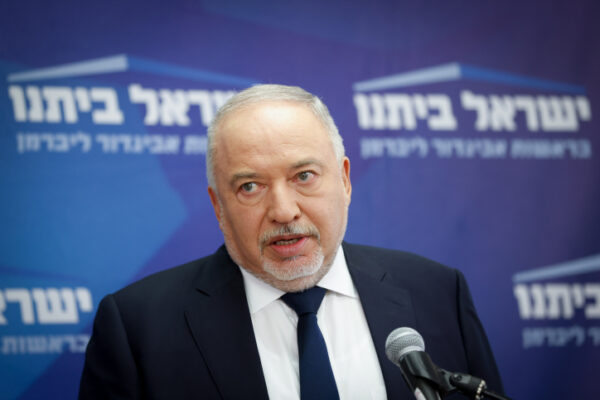
Although the elections for the 25th Knesset are taking place in the heart of a dramatic period of rising cost of living and a global recession, economic affairs have not taken precedence in the discourse leading up to the elections. Only a few detailed economic plans were published, and very few promises were made.
Inside of the two main political blocs, made up of Netanyahu’s supporters and his opponents, the parties do not necessarily align with each other on their economic positions.
If we continue beyond the party lines, to what the politicians do and not just what they say, the picture becomes even more confusing. Within the parties, there are different factors that promote different, and sometimes opposing, economic worldviews.
Therefore, it is difficult to condense the economic line of each party into a clear bottom line. However, Davar summarizes what each party competing in Tuesday’s elections has said and done in terms of economic.
Likud: Is Netanyahu bluffing?
Likud Chairman Benjamin Netanyahu has so far presented a surprising economic platform, with election promises that appeal to the general public and require a large budget expenditure. In other words – an economic leftist. Among other things, Netanyahu offers free education for ages birth to three; freezing property tax, as well as fuel and electricity prices in order to fight the rising cost of living; and changing the reform in agriculture, which abolished tariffs on imports despite the opposition of the farmers.

Besides the fact that these measures are completely contrary to the Prime Minister's economic stances in the past, they also contradict laws he passed in the past.
Netanyahu promises to use the tax collection surplus accumulated in the state budget for social expenditures, but the “expenditure law” enacted when he served as finance minister limits budgetary spending regardless of state revenues. He says he will use the gas profits to finance free education, but the “wealth fund” structure he created completely prevents this, as all the tax on excess profits in the Isreali gas reserve is now obliged by law not to invest in Israeli funds, but to divert them into investments outside of the country. The setbacks set up by Netanyahu in 2014 and 2003 will make it very difficult for the Netanyahu of 2022.
The chairman of the Likud even promised to freeze mortgage payments, something he does not have the authority to do. In response to a reporter's question on the matter, the Likud party clarified that he would indeed not do so. Netanyahu is known as someone who does and says whatever is necessary to win, and it would not be surprising if that happens in this case as well.
Still, the Netanyahu of the pandemic period has already managed to surprise in the past, like when he confronted the Treasury officials in order to expand support for the economy, and even led the plan for universal pensions.
So what will be left of Netanyahu's promises if he does return, especially if there is no one to put pressure on him to live up to his words? Netanyahu is still speaking in full capitalist rhetoric, and there has been no change in the economic line he has always presented. He will not be a socialist, perhaps he will reinvent himself as a certain type of “social populist”, or just a populist. The answer to this will also be largely influenced by the demands made by his coalition partners.
Yesh Atid: give us the keys and enjoy the ride
The current ruling party does have a detailed economic platform, but its current campaign hardly deals with the economic crisis. The main message is well expressed in the party's slogan, "You don't have to think about the change": give us the mandate, and continue to reap the benefits. This is, of course, on the assumption that it does benefit you.

The most convincing economic document issued by the Yesh Atid party is not its very detailed platform, but rather Lapid's “one million Israelis in high-tech” plan. The plan can be characterized as soft neoliberalism with the support of the state: investment in infrastructure and education, strengthening of the productive high-tech sector, and a basic safety net. This joins the the lowering of taxes for the middle and upper class, as already started in the last government.
These measures do not necessarily converge into a coherent policy, and do not give an answer to Lapid's famous question, “where is the money coming from?” But Yesh Atid does not pretend to be the party of the poor and the oppressed, and certainly not a socially revolutionary party. It will not make controversial economic measures, nor will it act against the advice of experts and the rather conservative establishment.
Labor and Meretz: a social democratic agenda or a neoliberal trap?
As far as its declared economic worldview is concerned, the Labor Party has undergone a significant change. After years in which it was a leading partner in the transformation of the economic-social systems that saw Israel go from a welfare state to a neoliberal economy, while rejecting its own socialist heritage, the party adopted a detailed social democratic platform, which corresponds with the resurgence of the economic and social left in the U.S. and around the world.
The economic plan presented by the Labor Party contains the full social democratic repertoire: social services, free education, increasing the state's share of GDP and financing through a deficit and expansionary economy. But nevertheless, on the economic level, the party is required to deal with a problematic legacy and a future trap.
The problematic legacy lies in its membership in the current government that contains elements of the economic right, and under the most right-wing finance minister since Netanyahu in the early 2000s. In the Israeli political-economic structure, the Treasury is the only office that really matters. Labor and the other coalition parties could, at most, wage a war of assembly surrounding budget cuts.
But the biggest economic problem of Labor is not only its legacy, but also its future. The party sees itself as an integral part of the “Change Bloc” which consists of Israel's economic right-wing parties, including Yesh Atid and Naftali Bennet’s Yamina. It is difficult to see a situation in which the political circumstances that would place Yair Lapid as Prime Minister, even just as a continuation of the transition government, would not include Avigdor Lieberman continuing as Finance Minister. In such a situation, the power of the Labor Party will be limited, for a simple reason: it will have nowhere to go.
At this point, the party maintains a clear order of priorities: its membership of the Change Bloc and the promise to prevent Netanyahu's return to power precede its own economic demands. Even a proposal for the full implementation of its economic plan with its detailed clauses will not bring the party into a right-wing and ultra-Orthodox government led by Netanyahu.
The Meretz party largely shares a biography with Labor. It also has a detailed social democratic platform, and it is also “trapped” in the Change Bloc.
However, there are two points that distance Meretz even further from the ability to implement a social democratic agenda: they did not put the economy at the center of their campaign, with the candidates that more closely identified with a social democratic agenda moving down the list in the primaries, meaning they are not expected to serve in the upcoming Knesset.
Shas and United Torah Judaism: looking out for the poor
The Shas party, with its Haredi Mizrahi voter base, focuses on one issue: aid to the weaker sectors of society. This party is the only one that plays almost entirely the economic and social card, and brings to center stage not only the middle class, but also Israel's minimum wage workers, who also make up the bulk of their voters.
The party has previously demonstrated commitment to this, at least when it comes to transferring payments and social rights. However, their campaign's flagship promise, the expansion of the food stamp project it started around the pandemic, has been criticized by social activists, claiming that its criteria discriminate against other disadvantaged communities.
United Torah Judaism, commanding the Ashkenazi Haredi voters, runs a less vigorous campaign, but has committed to raising the old-age pension to the level of the minimum wage. MK Moshe Gafni, Chairman of the Finance Committee for many years, is a talented parliamentarian and committed to broad social issues, from local industry to the retirement age for women. Unlike the current Chairman of the Finance Committee Alex Kushner, a member of Lieberman's party, he also did not hesitate to confront the Ministry of Finance.
The credit of the members of both parties in the Knesset can be attributed the fact that, unlike the other opposition parties, they were active in the last Knesset as members of the Finance Committee, and played active roles in promoting a solution for the families of the victims of the Mount Meron disaster in 2021.
As far as the Haredi parties are concerned, these elections are the moment of truth. Most of the measures that Lieberman led against the ultra-Orthodox, such as the denial of the subsidy for day care centers, were not implemented in the end. If the “change government” continues for another term, it is not certain that they will have the same luck.
The centrist camp: all bark and no bite
Benny Gantz's National Unity Party ran on a non-economic line, with the issue of security completely occupying the center of the agenda. The Knesset members with the party's economic agenda were moved to the second row, perhaps because of the difficulty of finding a common policy for Knesset members Gideon Sa'ar, Sharan Hashakal, Michael Biton, Yifat Shasha-Biton, Alon Shuster and Orit Farkash HaCohen.
And yet, the party finally published an economic platform, which, although it did not receive a high media profile, is certainly a detailed document with several important points: free education for preschoolers, financing the evacuation of buildings in disaster-prone areas on the periphery, financing medicine and unemployment benefits for the self-employed, and more.
But there is one point that drains the beautiful words of their economic platform: the question of financing. The plan does not answer the question of where the money will come from, which calls into question the party's readiness to implement it.
In the last government, several members of the Blue and White party were active in the economic and social field: Michael Bitton dealt with the reform of the standards and public transportation; Orit Farkash HaCohen called for the promotion of free preschool education; Alon Shuster and Michael Bitton opposed the reform in agriculture and more. Tikvah Hadasha is the economically right-wing party (Yifat Shasha-Biton deviated from this line by standing with the teachers union against the Treasury). The adhesion between the two parties seems artificial, and it is doubtful that it will last once real decisions have to be made.
The Arab parties: Abbas’ vision has not yet been realized
Amidst the deepening entrenchment of the parties into political camps, Mansour Abbas wins, without competition, the title of the most revolutionary politician on the field. Abbas changed the DNA of the Arab parties that refused to take a central part in the political game, and established Ra'am as a pragmatic party that strives for real achievements for its voters at the expense of militant rhetoric.
Contrary to the claims, the “experiment” of integrating an Arab party into the coalition did not fail, but it is also difficult to say that it was successful. Abbas succeeded in promoting the follow-up plan to the five-year plan for the Arab society, but its implementation remains in the initial stage.
The policy change, which began during the Netanyahu government, requires a lot of work because of real difficulties: the difficulty of getting the money to the right places, adjusting the work of the Arab local authorities so that they can actually use the budget and dealing with planning difficulties. This requires more than a year of a functioning government.
Ra’am voters, who are concentrated in the Bedouin communities in the Negev and several communities in the north, are the poorest public participating in the elections. The U-turn that Netanyahu made away from Abbas challenges his ability to succeed in bringing about a strategic change in the relations between the Arab public and the state. Abbas' vision is at a more fragile point than ever.
Religious Zionism: extreme right also economically
The religious Zionist campaign is distinctly non-economic, and focuses on security issues, settlements and opposition to the participation of the Arab parties in the government. But it is important to remember that underneath all this, this is a far-right party also from an economic point of view, whose official proposal on the issue echoes ideas from far-right think tank the Kohelet Forum, such as reducing the wages of public sector workers, limiting the right to strike and more.
Yisrael Beitenu: holding up the right wing
There is no need to expand on Avigdor Lieberman's policy. Although he was in office for less than a year and a half, he is undoubtedly an influential minister, who concentrated all the economic powers in the government and the Knesset, and promoted decisions in an effective manner.

After 5 years of Moshe Kahlon and a year of Israel Katz, Lieberman will be remembered as the Minister of Finance who worked with the officials of his office in complete harmony. He led the policies that supported the economy during the recovery from the pandemic, and then returned to the policy of budget reduction after the pandemic. Apart from pensions for permanent employees, Lieberman did not act contrary to the ministry's position.
In fact, after the dissolution of Tikvah Hadasha and in view of the expectations that Ayelet Shaked and Abir Kara will not pass the threshold, Yisrael Beitenu remains Israel's only distinct economic right-wing party. Lieberman's ideas may not be widely supported, but as long as he remains in the Ministry of Finance, these are the ideas that will shape the Israeli economy.
This article was translated from Hebrew by Nancye Kochen.






